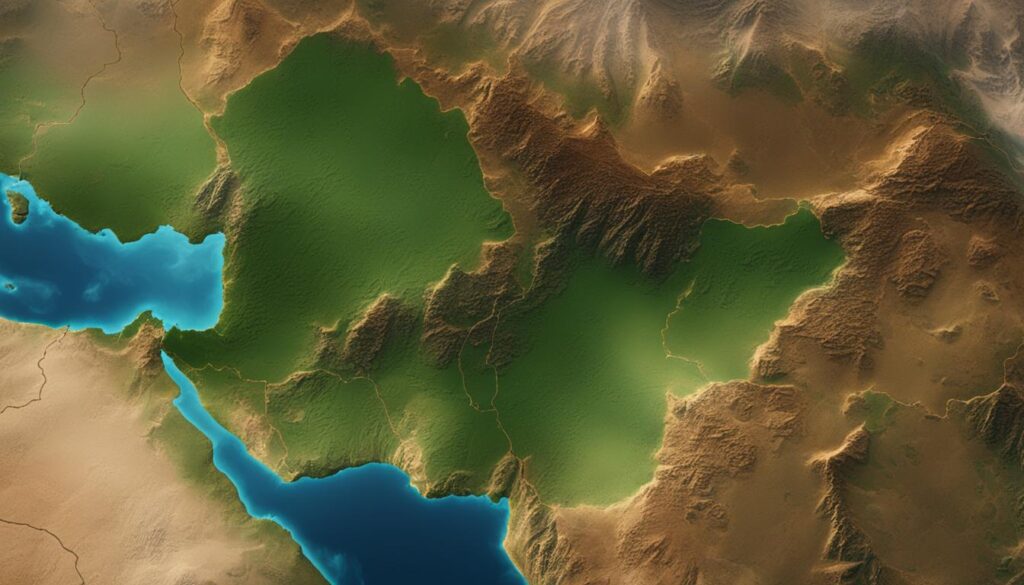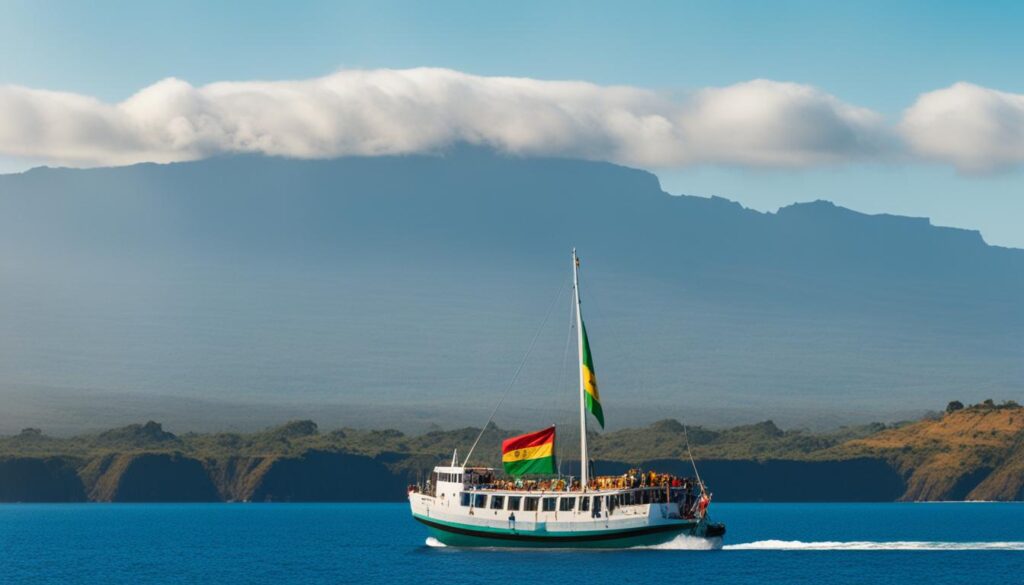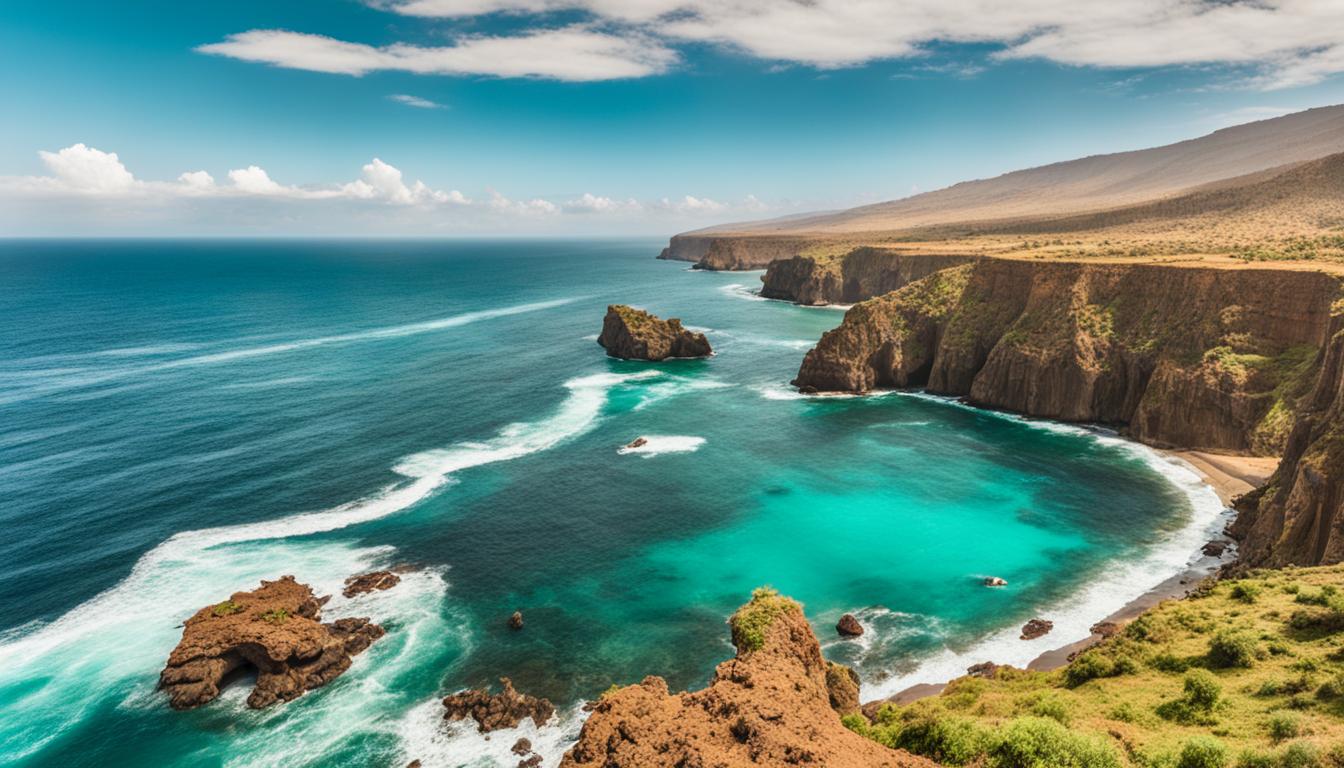Does Ethiopia Have a Coastline?
Did you know that Ethiopia, a country located in East Africa, does not have a direct coastline? This surprising fact has had profound implications for the country’s economic, political, and regional dynamics. Being landlocked poses challenges for Ethiopia’s trade routes, military capabilities, and influence in the Horn of Africa.
Key Takeaways:
- Ethiopia is a landlocked country, meaning it does not have direct access to the sea.
- The lack of a coastline has significant economic consequences for Ethiopia, forcing the country to rely on neighboring countries for trade.
- Political considerations and regional dynamics are impacted by Ethiopia’s landlocked status.
- Ethiopia is actively seeking peaceful solutions and negotiations to secure equitable marine access.
- Efforts are underway to overcome the challenges of being landlocked, with the goal of realizing Ethiopia’s full potential.
Economic Implications of Being Landlocked
The lack of direct coastal access has had significant economic consequences for Ethiopia. The country’s rapid economic growth and large population have necessitated a robust import-export trade. Currently, Ethiopia relies heavily on the port of Djibouti for its trade, but this dependence has proven to be costly and unsustainable.
At one point, 70% of Ethiopia’s trade passed through Eritrea’s Assab port, highlighting the importance of coastal access for the country’s economic development. Ethiopia has been exploring alternatives, including engaging with Eritrea, Djibouti, and Somaliland for the equitable use of their ports.
| Ethiopian Ports | Location | Advantages |
|---|---|---|
| Djibouti Port | Djibouti | – Proximity to Ethiopia – Current main trade route |
| Assab Port | Eritrea | – Historical trade route – Potential for future cooperation |
| Berbera Port | Somaliland | – New trade opportunity – Strategic location |
Additionally, the Lamu Port-South Sudan-Ethiopia Transport (LAPSSET) corridor with Kenya has the potential to significantly impact regional trade if completed. This project aims to establish an efficient transport and trade network connecting Ethiopia to the Indian Ocean, reducing trade dependence on Djibouti and diversifying Ethiopia’s options for maritime access.
Exploring these options and expanding access to Ethiopian ports is crucial for the country’s economic stability and sustainable growth. By diversifying trade routes and engaging in regional collaborations, Ethiopia can reduce its reliance on a single port and ensure the smooth flow of goods for its growing population and thriving industries.
Political Considerations and Regional Dynamics

Ethiopia’s lack of a coastline has significant political implications, particularly in its pursuit of regional dominance and influence in the Horn of Africa. Our country has played a central role in various regional organizations, including the African Union and the Intergovernmental Authority on Development.
Over the years, Ethiopia’s foreign policy has evolved from a security-focused approach to a more pragmatic one, taking into account various factors such as diplomacy, climate change, migration, terrorism, and access to the sea. Our government recognizes the importance of coastal access for enhancing Ethiopia’s political standing and contributing to the stability of the region.
“Ethiopia’s pursuit of coastal access is not driven solely by economic considerations but also by a desire to assert our political ambitions and strengthen our influence in the Horn of Africa.”
One significant development in our efforts towards regional stability and cooperation is the rapprochement with neighboring Eritrea, following a peace deal in 2018. This transformative shift in our relationship demonstrates Ethiopia’s commitment to peaceful resolutions and collaboration with our neighbors, ultimately promoting stability in the Horn of Africa.
The Horn of Africa is a complex region with various geopolitical dynamics. The acquisition of coastal access would offer Ethiopia a strategic advantage, enabling us to navigate regional politics effectively and contribute to shaping the future of the Horn of Africa.
Strengthening Regional Organizations
We believe that regional cooperation is key to achieving our political ambitions and addressing the challenges faced by the Horn of Africa. By actively participating in regional organizations, like the African Union, we aim to contribute to regional stability and foster a spirit of collaboration among member states.
Impact on Ethiopian Foreign Policy
Our pursuit of coastal access also shapes Ethiopia’s foreign policy priorities. We strive to strengthen diplomatic ties with countries in the region, pursuing mutually beneficial relationships that can contribute to our overall political objectives. This includes engaging in dialogue and negotiations with neighboring countries to explore avenues for peaceful agreements.
Expanding Horizons
Coastal access would significantly expand Ethiopia’s political reach and influence in the region. It would provide us with greater leverage in regional negotiations, enabling us to engage in a broader range of discussions related to trade, security, and economic partnerships.
Table
| Horn of Africa Regional Organizations | Key Objectives |
|---|---|
| African Union (AU) | – Promote peace, security, and stability in Africa |
| Intergovernmental Authority on Development (IGAD) | – Enhance regional cooperation and integration |
Lorem ipsum dolor sit amet, consectetur adipiscing elit.
As Ethiopia continues to navigate the complexities of the Horn of Africa, our government remains committed to peaceful resolutions, diplomatic engagement, and building a prosperous and stable region for all. The pursuit of coastal access is an essential part of our broader foreign policy goals and political ambitions.
Peaceful Solutions and Mutual Benefits

Ethiopia recognizes the importance of peaceful negotiations with its neighboring countries, Djibouti and Kenya, to secure equitable terms for accessing their coasts. While forceful access to the sea is not a viable option, Ethiopia is committed to pursuing agreements that benefit all parties involved.
Such peaceful solutions hold the potential to not only strengthen Ethiopia’s economy but also foster regional stability and collaboration among neighboring nations. By gaining peaceful access to the coast, Ethiopia can fully leverage its economic potential, reducing trade dependencies and expanding its geopolitical influence in the region.
“We firmly believe that peaceful agreements are the path forward towards unlocking Ethiopia’s access to the sea, ensuring mutual benefits for all parties involved,” commented Ethiopia’s Minister of Foreign Affairs.
Benefits of Peaceful Access to the Sea
Access to the sea has far-reaching implications for Ethiopia’s economic growth and development:
- Expanded Trade Opportunities: Peaceful access to the sea would enable Ethiopia to diversify its trade routes, reducing reliance on a single port. This increased flexibility would bolster the country’s trade volume and allow for greater market access.
- Enhanced Economic Stability: By securing peaceful access to the sea, Ethiopia can mitigate the risks associated with trade disruptions or political tensions in a single port. A diverse range of maritime routes would contribute to a more stable and resilient economy.
- Geopolitical Influence: Access to the coast would elevate Ethiopia’s status in regional and international affairs. It would open doors for the country to play a more active role in maritime security, trade agreements, and diplomatic negotiations.
As negotiations continue with Djibouti and Kenya, Ethiopia remains hopeful in achieving a peaceful resolution that provides both economic advantages and stability in the Horn of Africa region.
| Negotiation Progress | Ethiopia-Djibouti | Ethiopia-Kenya |
|---|---|---|
| Port Access | In discussion | Exploratory talks |
| Infrastructure Investment | Joint initiatives | Potential collaboration |
| Economic Benefits | Expanded trade opportunities | Improved regional connectivity |
Conclusion
Despite being a landlocked country without a direct coastline, Ethiopia is actively addressing the challenges of limited maritime access. We are committed to achieving regional stability and economic growth through peaceful negotiations with neighboring countries. While our geography lacks direct access to the sea, we are exploring alternative trade routes and investing in infrastructure projects like the Lamu Port-South Sudan-Ethiopia Transport (LAPSSET) corridor.
Through diplomatic channels and mutually beneficial agreements, Ethiopia aims to overcome the constraints of its landlocked status and unlock its full economic potential. The absence of a coastline has not hindered our determination to connect with global markets and enhance regional collaboration. Our efforts demonstrate our commitment to regional stability, prosperity, and the realization of Ethiopia’s immense potential.
As we continue working towards secure and equitable maritime arrangements, we remain optimistic about the future. While Ethiopia’s coastline may not exist in the conventional sense, our strategic initiatives and partnerships ensure that our nation plays a vital role in the Horn of Africa and beyond. Together with our neighboring countries, we are working towards a more interconnected future that benefits all involved.






